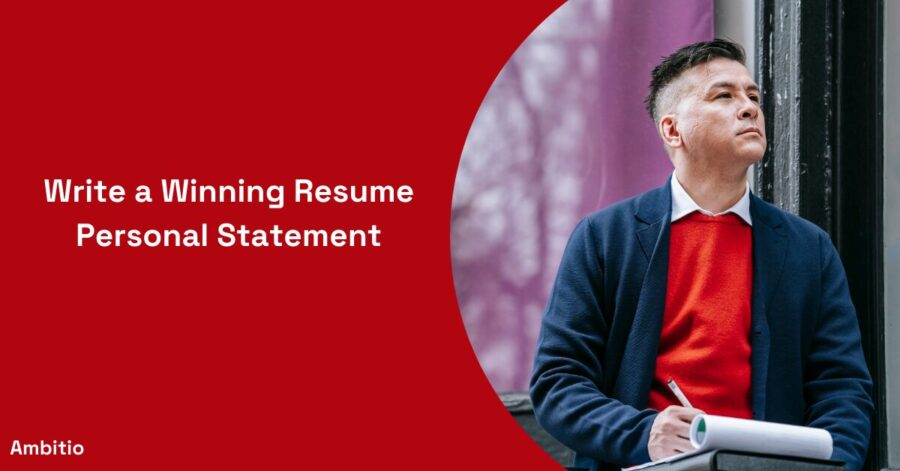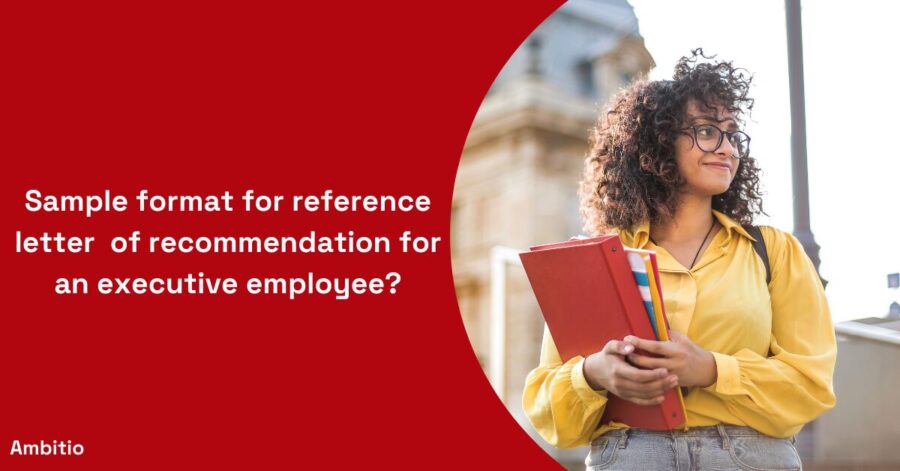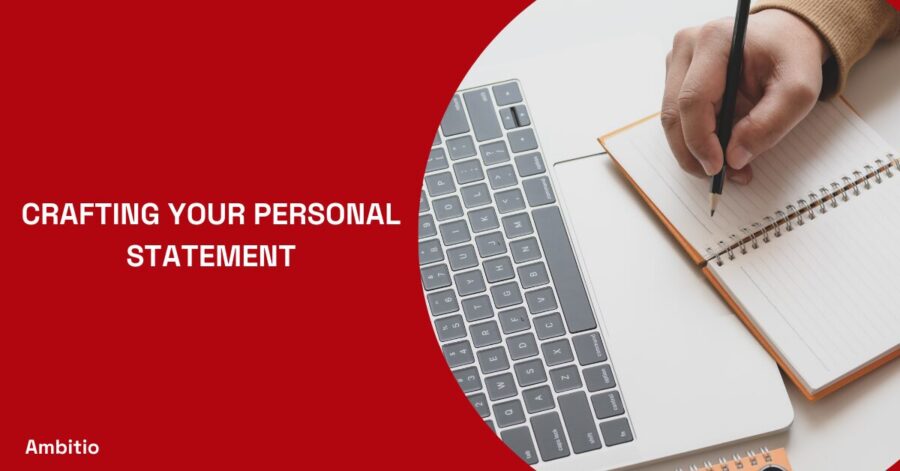13 December 2024
6 minutes read
Write a Winning Resume Personal Statement

Writing a resume personal statement for your CV or resume can be one of the most daunting aspects of completing your job application. It’s often the first thing that a recruiter or hiring manager will read, so it needs to make a big impact. If you are not sure how to write a personal statement, this guide will help you get started.
What is a Personal Statement?
Understanding the Basics
A personal statement, sometimes referred to as a personal profile or career objective, is a short statement at the top of your CV or resume that summarizes who you are, your skills and experience, and what you are looking for in a job. It’s a chance to showcase your career goals and explain why you are the best fit for the job.
Personal Statement vs. Objective Statement
A personal statement is different from an objective statement. An objective statement is a brief paragraph that outlines your career goals, while a personal statement provides more detail about your skills and experience and how they make you the best choice for the position.
| Aspect | Personal Statement | Objective Statement |
|---|---|---|
| Purpose | Self-expression, showcases personality, goals, values | Emphasizes career objectives, skills, and qualifications |
| Content | Often includes anecdotes, experiences, and aspirations | Focuses on specific career goals and achievements |
| Tone | More personal, reflective, and narrative | Typically concise, direct, and business-oriented |
| Flexibility | May vary in format and structure, less formulaic | Often follows a standard template with clear sections |
| Applicability | Common in college applications, scholarships, and jobs | Primarily used in resumes and job applications |
| Audience | Admissions committees, hiring managers | Potential employers or recruiters |
| Chronology | Can include experiences from various life stages | Primarily focuses on current and future career objectives |
| Example | “Passionate about environmental conservation, with a strong commitment to sustainability.” | “Seeking a challenging project management role to leverage my leadership skills and experience.” |
Importance of Personal Statement
Why Do You Need a Personal Statement?
The need for a personal statement on your CV or resume might not always be explicitly stated, but its importance cannot be understated. It’s not just a fluffy introduction; it serves several strategic purposes that can greatly influence the trajectory of your job application. Here are some compelling reasons why a well-crafted personal statement is essential:
- Sets the Tone for the Rest of Your CV
- Acts as an opening argument for why you should be hired
- Intrigues employers and prompts careful reading
- Allows You to Tailor Your Application
- Demonstrates interest in the role
- Shows you’ve customized your application to the job description
- Highlights Your Most Relevant Skills and Experience
- Filters and emphasizes pertinent attributes
- Makes it easier for hiring managers to see your suitability
- Showcases Your Career Goals
- Discusses future career aspirations
- Conveys a sense of direction and purpose
- Provides a Platform for Transferrable Skills
- Especially useful for recent graduates or career changers
- Demonstrates how your background prepares you for the role
- Makes You More Memorable
- Increases chances of being called for an interview
- Crucial in competitive fields with many applicants
- Helps You Stand Out in Automated Applicant Systems
- Includes keywords related to the job description
- Increases the likelihood of passing automated screening
By thoughtfully crafting your personal statement, you’re not just filling space on your CV; you’re strategically positioning yourself as a strong, memorable candidate. This small but mighty paragraph can make a significant impact on how your application is received, making it well worth the effort to get it right.
Crafting Your Personal Statement
How to Write a Personal Statement
- Start with a Strong Opening: The opening statement of your personal statement should grab the reader’s attention and make them want to know more about you. Start with a strong opening sentence that showcases your most important skills and experience. For example, “As a recent graduate with extensive experience in e-commerce, I am excited to apply for the sales manager position at XYZ Company.”
- Highlight Your Skills and Experience: Your personal statement should include your most relevant skills and experience for the job you are applying for. Use the job description as a guide to identify the most important skills and qualifications required for the position. Then, highlight your own skills and experience that match these requirements. For example, “With 10 years of experience managing a successful online store, I have a proven track record of increasing sales and improving customer satisfaction.”
- Show Your Passion and Enthusiasm: Your personal statement should also show your passion and enthusiasm for the job and the industry. Explain why you are interested in the position and how it aligns with your career goals. For example, “I am passionate about helping businesses succeed online and am excited about the opportunity to lead a team of dedicated sales professionals at XYZ Company.”
- Keep It Brief: Your personal statement should be concise and to the point. Aim for a length of 3-4 sentences or 50-150 words. Remember, this is just a brief introduction to your CV or resume, and you will have the opportunity to provide more detail in the other sections of your CV or resume.
- Tailor It to the Job: It’s important to tailor your personal statement to each job you apply for. Use the job description as a guide to identify the most important skills and qualifications required for the position, and then highlight your own skills and experience that match these requirements.
Personal Statement Examples
Here are some examples of personal statements to help you get started:
Example 1
“As a recent graduate from the University with a degree in Marketing, I am excited to apply for the assistant position at XYZ Company. With 2 years of experience working as a marketing intern, I have developed strong communication and organizational skills and am confident in my ability to contribute to the success of the team.”
Example 2
“With 10 years of experience managing large teams and a proven track record of increasing sales and improving customer satisfaction, I am excited to apply for the sales manager position at XYZ Company. I am passionate about helping businesses succeed and am confident in my ability to lead a team of dedicated sales professionals to achieve our goals.”
Tips for Writing a Compelling Personal Statement
Your personal statement is your chance to make a great first impression on a potential employer. Here are some tips for writing a compelling personal statement:
- Be Honest: Be honest about your skills and experiences. Don’t exaggerate or lie about your abilities, as this will only lead to disappointment and a lack of trust from the employer.
- Use Positive Language: Use positive language to convey your enthusiasm and passion for the role and the industry.
- Be Specific: Be specific about your skills and experiences. Provide examples of how you have demonstrated your skills in the past and how these experiences make you a good fit for the job.
- Show How You Can Add Value: Show how you can add value to the company. Explain how your skills and experiences make you the best person for the job and how you can contribute to the success of the team and the company.
- Proofread: Make sure to proofread your personal statement carefully. Check for spelling and grammar mistakes and make sure it is well-written and easy to read.
Remember, your personal statement is just one part of your CV or resume. Make sure to also include detailed information about your work experience, education, and skills in the other sections of your CV or resume.
Common Mistakes to Avoid in a Personal Statement
Writing a personal statement can be challenging, but avoiding these common mistakes can help you create a strong and compelling personal statement:
- Being Too Generic: Your personal statement should be tailored to the job you are applying for. Avoid using a generic statement that could apply to any job or industry.
- Being Too Long or Too Short: Your personal statement should be concise and to the point, but it also needs to include enough information to grab the recruiter’s attention and make them want to know more about you.
- Focusing on the Wrong Things: Your personal statement should focus on your most relevant skills and experiences for the job you are applying for. Don’t waste space talking about experiences or skills that are not directly related to the position.
- Being Negative: Your personal statement should be positive and upbeat. Avoid talking about negative experiences or shortcomings.
- Using Clichés: Avoid using clichés in your personal statement. Phrases like “I am a hard worker” or “I am a team player” are overused and don’t provide any specific information about your skills or experiences.
Remember, your personal statement is your chance to make a great first impression on a potential employer. By avoiding these common mistakes and following the tips provided in this guide, you can create a compelling personal statement that helps you stand out from the crowd.
Conclusion
Writing a compelling personal statement for your CV or resume is an important part of your job application. It provides an opportunity to make a strong first impression and showcase your most relevant skills and experience.
By following these tips and examples, you can create a personal statement that grabs the recruiter’s attention and helps you stand out from the crowd.
FAQs
Is a personal statement necessary on a CV or resume?
While it’s not mandatory, a personal statement can help to grab the recruiter’s attention and provide a brief overview of your skills and experience. It can be particularly useful if you are a recent graduate or changing careers and want to highlight your transferable skills.
How long should a personal statement be?
A personal statement should be concise and to the point, typically 3-4 sentences or 50-150 words in length.
What should be included in a personal statement?
Your personal statement should include a brief overview of who you are, your most relevant skills and experience, and what you are looking for in a job. It should also show your passion and enthusiasm for the job and the industry.
Should I tailor my personal statement to each job?
Yes, it’s important to tailor your personal statement to each job you apply for. Use the job description as a guide to identify the most important skills and qualifications required for the position, and then highlight your own skills and experience that match these requirements.

You can study at top universities worldwide!
Get expert tips and tricks to get into top universities with a free expert session.
Book Your Free 30-Minute Session Now! Book a call now




























